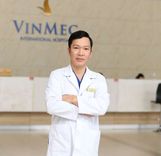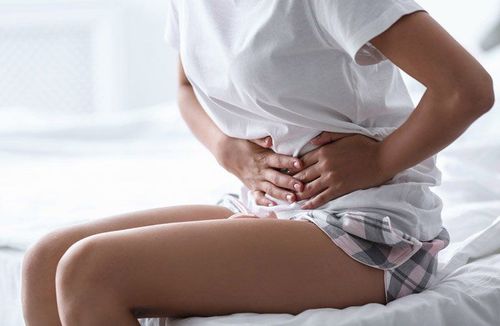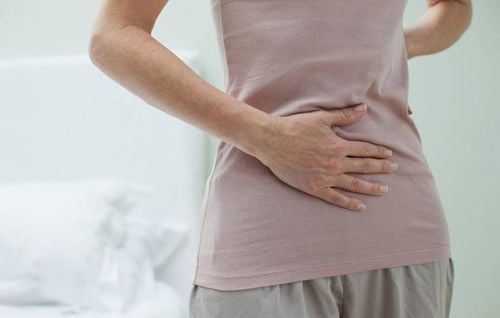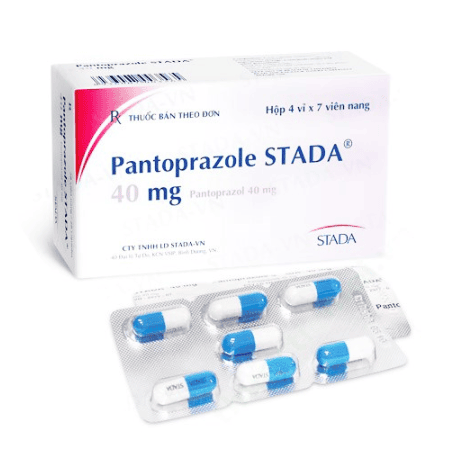This is an automatically translated article.
The article is professionally consulted by Master, Doctor Vu Huy Binh - Department of Medical Examination & Internal Medicine - Vinmec Hai Phong International General Hospital.Everyone will experience occasional stomach upset that is transient and not cause for concern. But in some cases, depending on the severity and accompanying symptoms, you may need to see your doctor to find out what's causing your stomach pain.
1. Gastritis
Stomach fluid helps you digest foods that contain a lot of acid. Sometimes these chemicals break through the "protective barrier" and irritate the stomach lining.This condition is called gastritis . Bacteria, overusing painkillers (like ibuprofen), drinking a lot of alcohol, or stress are all contributing factors to your stomach upset. There are cases where patients are treated with antacids or some over-the-counter prescription medications. However, it should not be subjective because this condition has the risk of leading to bleeding or stomach ulcers.

2. Stomach ulcers
These are open sores located on the lining of the stomach or the first part of the small intestine, causing you stomach pain. The most common cause is bacteria, but overuse of aspirin, ibuprofen, and other pain relievers can also be a risk factor. In addition, people who smoke or drink alcohol regularly are also more prone to stomach ulcers. Depending on the cause, the condition will be treated with antibiotics or prescription medications to reduce stomach acid.
3. Stomach virus
Also known as “stomach flu”, it is caused by a viral infection in the intestines. Patients may experience stomach pain, diarrhea, cramps, or actual nausea and vomiting. The disease is transmitted from infected person to healthy person or from contaminated food. There is no specific treatment because stomach viruses usually go away on their own. But it's still important to see your doctor if you have a fever, are vomiting, are dehydrated, or are vomiting or having bloody stools.
4. Food poisoning
Bacteria, viruses and parasites in food or improper food handling are the causes of poisoning. Victims may experience diarrhea, stomach upset, nausea, and vomiting.
Food poisoning usually clears up on its own, but see a doctor if there are signs of dehydration, vomiting or bloody stools, or severe diarrhea that lasts more than 3 days. You should also go to the hospital right away in case someone who is sick or has a weak immune system shows symptoms of food poisoning.
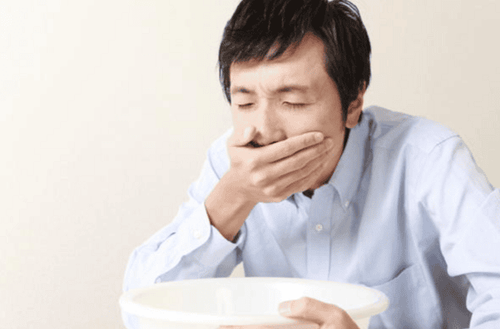
5. Diverticulitis
Small diverticula located in the lower part of the large intestine, when inflamed, swell inside the lining of the digestive system. Diverticulitis is quite common and usually leaves no serious problems. But if they become infected, they can cause severe abdominal pain, nausea, and changes in bowel movements. Your doctor will ask you to rest and change your diet to relieve symptoms, and may prescribe antibiotics.
6. Irritable Bowel Syndrome
This syndrome affects mainly the large intestine (also called the colon), causing cramping, bloating, and mucus production in the stool. Irritable bowel syndrome can also be associated with diarrhea or constipation. The exact cause is still unknown, but factors such as food, stress, hormones and infections may play a role. Your doctor will help you manage your symptoms through advice on making changes to your diet and lifestyle, as well as prescribing certain medications.
7. Lactose intolerance
Lactose is the sugar in milk and other dairy products. If you don't have enough lactase enzyme, your body will have trouble breaking down lactose. This can lead to diarrhea, bloating, and stomach upset. Although there is no cure, you can control this condition by limiting dairy in your daily diet or taking some over-the-counter medications.
8. Pelvic Inflammation
Also called inflammation of the reproductive organs, it usually occurs in women and is accompanied by a sexually transmitted disease, such as chlamydia or gonorrhea.
Besides abdominal pain, the person may also have a fever, unusual discharge, and pain or bleeding during sex. If caught early, pelvic inflammatory disease can be cured, usually with antibiotics. But if the disease goes on for too long, a woman's reproductive system can be damaged.
9. Food allergies
This condition occurs when the body mistakenly reacts to certain foods, thinks they are harmful, and tries to fight back. In addition to stomach pain, other symptoms such as tingling and swelling in the mouth and throat... also appear.
In severe cases, a food allergy can cause anaphylaxis and even death if not treated with epinephrine right away. Seafood, nuts, eggs, peanuts and dairy are some of the risk factors for allergies.
10. Appendicitis
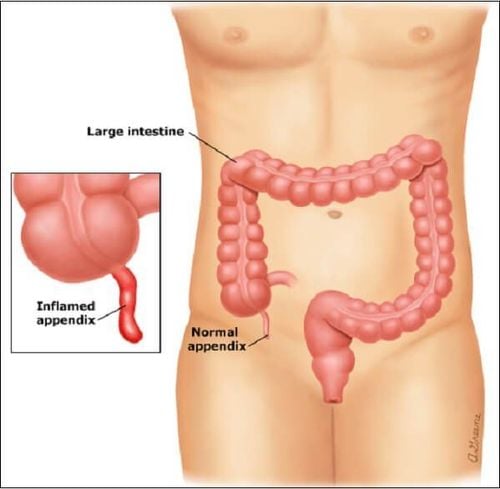
The appendix is a finger-shaped organ, located at the top of the colon, specifically the lower right part of the abdomen. Doctors don't know how the appendix works, so when the appendix becomes inflamed, it's usually surgically removed. If ruptured, the appendix can spread bacteria to the abdomen. Pain that begins in the navel and then radiates down the right side is a typical symptom. Go to the hospital immediately if you develop signs of appendicitis.
11. Gallstone pain
Gallstones form from digestive secretions, causing pain when lying down and blocking the ducts between the liver, pancreas, gallbladder and small intestine. The most common symptom is abdominal pain, if the pain is severe or lasts more than a few hours, see your doctor right away.
You may also experience nausea, vomiting, fever, yellow urine (tea color) and light-colored stools. Although there are cases where the stones move or dissolve on their own, you will need surgery if the situation does not improve.
12. Inguinal hernia
A hernia occurs when part of the intestine slides through the abdomen and into the groin. The intestine will twist or move, and can't get blood supply, causing severe abdominal pain. Surgery is needed to quickly fix the problem.
13. Constipation
Exercising, drinking plenty of water, and eating foods rich in fiber (like prunes and whole grains) can help relieve constipation. But if you have frequent bowel movements less than three times a week, or have to push a lot each time and your stools are hard and lumpy, this could be a sign of a more serious condition and you need to talk to your doctor soon. doctor.
14. Pancreatitis
The pancreas is an organ that helps the body process glucose and digest food. When the pancreas is inflamed, you may experience nausea, vomiting, stomach upset... the pain will get worse after eating. Mild cases will go away on their own, but severe cases are more likely to be dangerous. Doctors usually ask patients to stop eating for 1-2 days and give pain relievers. If your condition does not improve, you may need to go to the hospital to receive fluids and nutrition.Abdominal pain is quite common and can be a warning sign of another, more dangerous condition. If not detected and treated in time, stomach pain will affect the health and work of the patient. That's why paying attention to early symptoms and finding out what's causing stomach pain is crucial for successful treatment.
Vinmec International General Hospital is one of the hospitals that not only ensures professional quality with a team of experienced doctors and nurses, a system of modern equipment and technology, but also stands out for its medical examination and treatment services. comprehensive and professional medical consultation and treatment; civilized, polite, safe and sterile medical examination and treatment space.
Please dial HOTLINE for more information or register for an appointment HERE. Download MyVinmec app to make appointments faster and to manage your bookings easily.
Article referenced source: Webmd.com